Frequent persons on Ecuador's street signs
countries
126 names / 745 streets
Simón Bolívar
 64
Simón José Antonio de la Santísima Trinidad Bolívar Palacios Ponte y Blanco was a Venezuelan military and political leader who led what are currently the countries of Colombia, Venezuela, Ecuador,...
64
Simón José Antonio de la Santísima Trinidad Bolívar Palacios Ponte y Blanco was a Venezuelan military and political leader who led what are currently the countries of Colombia, Venezuela, Ecuador,...
Antonio José de Sucre
 54
Antonio José de Sucre y Alcalá, known as the "Gran Mariscal de Ayacucho", was a Venezuelan general and politician who served as the president of Bolivia from 1825 to 1828. A close friend and...
54
Antonio José de Sucre y Alcalá, known as the "Gran Mariscal de Ayacucho", was a Venezuelan general and politician who served as the president of Bolivia from 1825 to 1828. A close friend and...
Gabriel García Moreno
 43
Gabriel Gregorio Fernando José María García Moreno y Morán de Butrón, was an Ecuadorian politician and aristocrat who twice served as President of Ecuador and was assassinated during his second term...
43
Gabriel Gregorio Fernando José María García Moreno y Morán de Butrón, was an Ecuadorian politician and aristocrat who twice served as President of Ecuador and was assassinated during his second term...
Eloy Alfaro
 33
José Eloy Alfaro Delgado often referred to as "The Old Warrior," was an Ecuadorian politician who served as the President of Ecuador from 1895 to 1901 and from 1906 to 1911. Eloy Alfaro emerged as...
33
José Eloy Alfaro Delgado often referred to as "The Old Warrior," was an Ecuadorian politician who served as the President of Ecuador from 1895 to 1901 and from 1906 to 1911. Eloy Alfaro emerged as...
Vicente Rocafuerte
 29
Vicente Rocafuerte y Bejarano was an influential figure in Ecuadorian politics and President of Ecuador from 10 September 1834 to 31 January 1839.
29
Vicente Rocafuerte y Bejarano was an influential figure in Ecuadorian politics and President of Ecuador from 10 September 1834 to 31 January 1839.
Juan Montalvo
 28
Juan María Montalvo Fiallos was an Ecuadorian essayist and novelist. His writing was strongly marked by anti-clericalism and opposition to presidents Gabriel García Moreno and Ignacio de Veintemilla....
28
Juan María Montalvo Fiallos was an Ecuadorian essayist and novelist. His writing was strongly marked by anti-clericalism and opposition to presidents Gabriel García Moreno and Ignacio de Veintemilla....
José Joaquín de Olmedo
 23
José Joaquín de Olmedo y Maruri was President of Ecuador from 6 March 1845 to 8 December 1845. A patriot and poet, he was the son of the Spanish Captain Don Miguel de Olmedo y Troyano and the...
23
José Joaquín de Olmedo y Maruri was President of Ecuador from 6 March 1845 to 8 December 1845. A patriot and poet, he was the son of the Spanish Captain Don Miguel de Olmedo y Troyano and the...
Eugenio Espejo
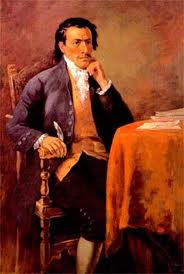 20
Francisco Javier Eugenio de Santa Cruz y Espejo[a] was a medical pioneer, writer and lawyer of criollo origin in colonial Ecuador. Although he was a notable scientist and writer, he stands out as a...
20
Francisco Javier Eugenio de Santa Cruz y Espejo[a] was a medical pioneer, writer and lawyer of criollo origin in colonial Ecuador. Although he was a notable scientist and writer, he stands out as a...
José María Velasco Ibarra
 19
José María Velasco Ibarra was an Ecuadorian politician. He became president of Ecuador five times, in 1934–1935, 1944–1947, 1952–1956, 1960–1961, and 1968–1972, and only in 1952–1956 he completed a...
19
José María Velasco Ibarra was an Ecuadorian politician. He became president of Ecuador five times, in 1934–1935, 1944–1947, 1952–1956, 1960–1961, and 1968–1972, and only in 1952–1956 he completed a...
Atahualpa
 18
Atahualpa, also Atawallpa (Quechua), Atabalica, Atahuallpa, Atabalipa, was the last effective Inca emperor before his capture and execution during the Spanish conquest.
18
Atahualpa, also Atawallpa (Quechua), Atabalica, Atahuallpa, Atabalipa, was the last effective Inca emperor before his capture and execution during the Spanish conquest.
Christopher Columbus
 14
Christopher Columbus was an Italian explorer and navigator from the Republic of Genoa who completed four Spanish-based voyages across the Atlantic Ocean sponsored by the Catholic Monarchs, opening...
14
Christopher Columbus was an Italian explorer and navigator from the Republic of Genoa who completed four Spanish-based voyages across the Atlantic Ocean sponsored by the Catholic Monarchs, opening...
Jaime Roldós Aguilera
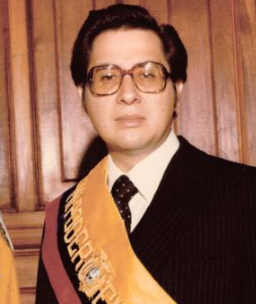 14
Jaime Roldós Aguilera was an Ecuadorian politician who was the 33rd President of Ecuador from 10 August 1979 until his death on 24 May 1981. In his short tenure, he became known for his firm stance...
14
Jaime Roldós Aguilera was an Ecuadorian politician who was the 33rd President of Ecuador from 10 August 1979 until his death on 24 May 1981. In his short tenure, he became known for his firm stance...
Federico González Suárez
 13
Federico González Suárez (1844–1917) was an Ecuadorian priest, historian and politician who served as the Archbishop of Quito for twelve years. Prior to becoming the Archbishop of Quito, he served as...
13
Federico González Suárez (1844–1917) was an Ecuadorian priest, historian and politician who served as the Archbishop of Quito for twelve years. Prior to becoming the Archbishop of Quito, he served as...
Luis Cordero Crespo
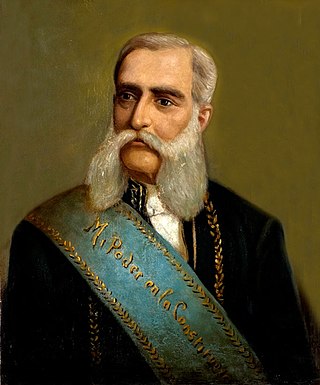 12
Luis Benjamín Cordero y Crespo was President of Ecuador 1 July 1892 to 16 April 1895.
12
Luis Benjamín Cordero y Crespo was President of Ecuador 1 July 1892 to 16 April 1895.
Rumiñawi (Inca warrior)
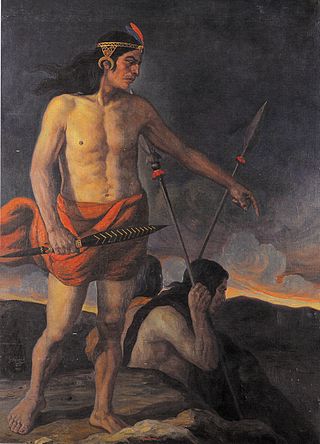 12
Rumiñawi, born late 15th century in present-day Ecuador, died June 25, 1535, was a general during the Inca Civil War. Hispanicized spellings of his name include Rumiaoui, Ruminavi, Ruminagui,...
12
Rumiñawi, born late 15th century in present-day Ecuador, died June 25, 1535, was a general during the Inca Civil War. Hispanicized spellings of his name include Rumiaoui, Ruminavi, Ruminagui,...
Francisco de Orellana
 11
Francisco de Orellana was a Spanish explorer and conquistador. In one of the most improbably successful voyages in known history, Orellana managed to sail the length of the Amazon, arriving at the...
11
Francisco de Orellana was a Spanish explorer and conquistador. In one of the most improbably successful voyages in known history, Orellana managed to sail the length of the Amazon, arriving at the...
Abdón Calderón
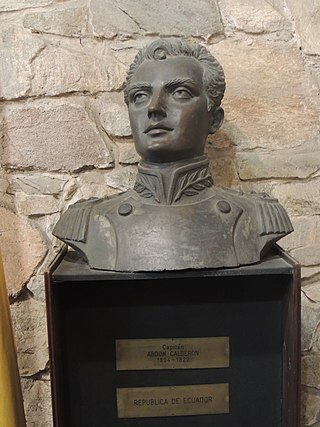 10
Abdón Calderón Garaycoa fue un héroe de la guerra de independencia del Ecuador que murió a consecuencia de las heridas sufridas en la batalla del Pichincha. Fue tal su heroísmo que Simón Bolívar no...
10
Abdón Calderón Garaycoa fue un héroe de la guerra de independencia del Ecuador que murió a consecuencia de las heridas sufridas en la batalla del Pichincha. Fue tal su heroísmo que Simón Bolívar no...
Pedro Vicente Maldonado
 9
Pedro Vicente Maldonado y Flores was an Ecuadorian scientist who collaborated with the members of the French Geodesic Mission. As well as a physicist and a mathematician, Maldonado was an astronomer,...
9
Pedro Vicente Maldonado y Flores was an Ecuadorian scientist who collaborated with the members of the French Geodesic Mission. As well as a physicist and a mathematician, Maldonado was an astronomer,...
Francis of Assisi
 9
Giovanni di Pietro di Bernardone, known as Francis of Assisi, was an Italian mystic, poet and Catholic friar who founded the religious order of the Franciscans. He was inspired to lead a Christian...
9
Giovanni di Pietro di Bernardone, known as Francis of Assisi, was an Italian mystic, poet and Catholic friar who founded the religious order of the Franciscans. He was inspired to lead a Christian...
León Febres Cordero
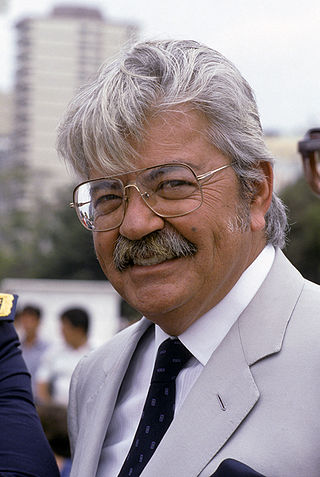 8
León Esteban Febres-Cordero Ribadeneyra, known in the Ecuadorian media as LFC or more simply by his first, composed surname (Febres-Cordero), was the 35th President of Ecuador, serving a four-year...
8
León Esteban Febres-Cordero Ribadeneyra, known in the Ecuadorian media as LFC or more simply by his first, composed surname (Febres-Cordero), was the 35th President of Ecuador, serving a four-year...
Juan León Mera
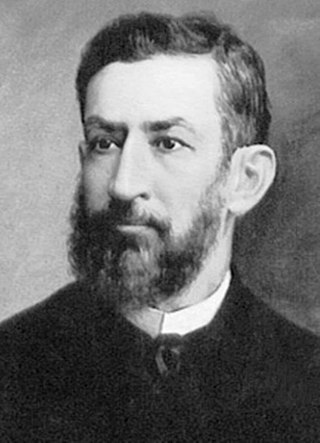 8
Juan León Mera Martínez was an Ecuadorian essayist, novelist, politician and painter. His best-known works are the Ecuadorian National Hymn and the novel Cumandá (1879). Additionally, in his...
8
Juan León Mera Martínez was an Ecuadorian essayist, novelist, politician and painter. His best-known works are the Ecuadorian National Hymn and the novel Cumandá (1879). Additionally, in his...
Rose of Lima
 8
Rose of Lima, TOSD was a member of the Third Order of Saint Dominic in Lima, Peru, who became known for both her life of severe penance and her care of the poverty stricken of the city through her...
8
Rose of Lima, TOSD was a member of the Third Order of Saint Dominic in Lima, Peru, who became known for both her life of severe penance and her care of the poverty stricken of the city through her...
Pio Jaramillo Alvarado
 7
Pío Jaramillo Alvarado fue un jurista, profesor y escritor ecuatoriano, conocido por su reflexión acerca de la nacionalidad ecuatoriana durante la primera mitad del siglo XX. Fue uno de los...
7
Pío Jaramillo Alvarado fue un jurista, profesor y escritor ecuatoriano, conocido por su reflexión acerca de la nacionalidad ecuatoriana durante la primera mitad del siglo XX. Fue uno de los...
Isidro Ayora
 7
Isidro Ramon Antonio Ayora Cueva was an Ecuadorian political figure. He served as the 22nd President of Ecuador from 1926 to 1931. Isidro Ayora, a town in Guayas, and Puerto Ayora, are named after...
7
Isidro Ramon Antonio Ayora Cueva was an Ecuadorian political figure. He served as the 22nd President of Ecuador from 1926 to 1931. Isidro Ayora, a town in Guayas, and Puerto Ayora, are named after...
Theodor Wolf
 6
Franz Theodor Wolf was a German naturalist who studied the Galápagos Islands during the late nineteenth century. Wolf Island is named after him. The peak Volcán Wolf on Isabela Island is also named...
6
Franz Theodor Wolf was a German naturalist who studied the Galápagos Islands during the late nineteenth century. Wolf Island is named after him. The peak Volcán Wolf on Isabela Island is also named...
Michael (archangel)
 6
Michael, also called Saint Michael the Archangel, Archangel Michael and Saint Michael the Taxiarch is an archangel in Judaism, Christianity, Islam, and the Baha'i faith. The earliest surviving...
6
Michael, also called Saint Michael the Archangel, Archangel Michael and Saint Michael the Taxiarch is an archangel in Judaism, Christianity, Islam, and the Baha'i faith. The earliest surviving...
Camilo Ponce Enríquez (politician)
 6
Camilo Ponce Enríquez was an Ecuadorian political figure. He served as the 30th President of Ecuador between 1956 and 1960. He was married to Dolores Marta Gracia de Gangotena y Jijón.
6
Camilo Ponce Enríquez was an Ecuadorian political figure. He served as the 30th President of Ecuador between 1956 and 1960. He was married to Dolores Marta Gracia de Gangotena y Jijón.
José Peralta Serrano
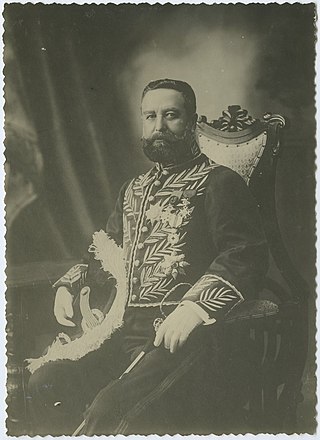 5
José Peralta Serrano fue un político y periodista ecuatoriano. Fue ministerio de Relaciones Exteriores de Ecuador, rector de la Universidad de Cuenca y senador de liberal durante la Revolución...
5
José Peralta Serrano fue un político y periodista ecuatoriano. Fue ministerio de Relaciones Exteriores de Ecuador, rector de la Universidad de Cuenca y senador de liberal durante la Revolución...
Miguel Febres Cordero
 5
Francisco Luis Febres-Cordero y Muñoz, known as Miguel Febres Cordero and Brother Miguel, was an Ecuadorian Roman Catholic religious brother. He became a professed member of the Brothers of the...
5
Francisco Luis Febres-Cordero y Muñoz, known as Miguel Febres Cordero and Brother Miguel, was an Ecuadorian Roman Catholic religious brother. He became a professed member of the Brothers of the...
Ignacio de Veintemilla
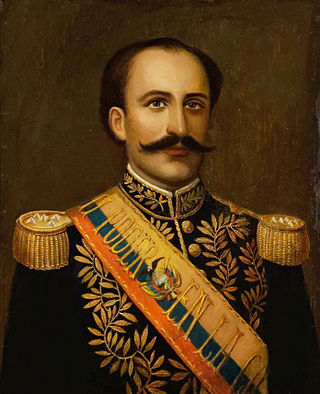 5
Mario Ignacio Francisco Tomás Antonio de Veintemilla y Villacís was President of Ecuador 18 December 1876 to 9 July 1883. During his presidency, his niece Marieta de Veintemilla acted as his first...
5
Mario Ignacio Francisco Tomás Antonio de Veintemilla y Villacís was President of Ecuador 18 December 1876 to 9 July 1883. During his presidency, his niece Marieta de Veintemilla acted as his first...
Galo Plaza
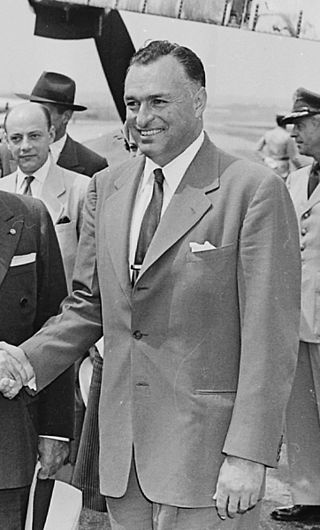 5
Galo Lincoln Plaza Lasso de la Vega was an Ecuadorian statesman who served as President of Ecuador from 1948 to 1952 and Secretary General of the Organization of American States from 1968 to 1975. He...
5
Galo Lincoln Plaza Lasso de la Vega was an Ecuadorian statesman who served as President of Ecuador from 1948 to 1952 and Secretary General of the Organization of American States from 1968 to 1975. He...
Alberto Enríquez Gallo
 5
Gil Alberto Enríquez Gallo was President of Ecuador 1937–1938.
5
Gil Alberto Enríquez Gallo was President of Ecuador 1937–1938.
Mariana de Jesús de Paredes
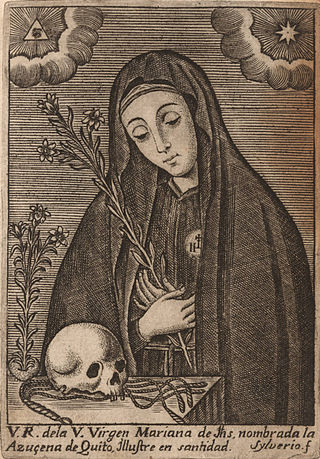 5
Mariana of Jesus de Paredes is a Catholic saint and was the first person to be canonized from what is now Ecuador. She was a recluse who is said to have sacrificed herself for the salvation of her...
5
Mariana of Jesus de Paredes is a Catholic saint and was the first person to be canonized from what is now Ecuador. She was a recluse who is said to have sacrificed herself for the salvation of her...
Juan de Velasco
 5
Juan de Velasco y Pérez Petroche (1727–1792) was an 18th-century Jesuit priest, historian, and professor of philosophy and theology from the Royal Audience of Quito. He was born in Riobamba to Juan...
5
Juan de Velasco y Pérez Petroche (1727–1792) was an 18th-century Jesuit priest, historian, and professor of philosophy and theology from the Royal Audience of Quito. He was born in Riobamba to Juan...
Saint Peter
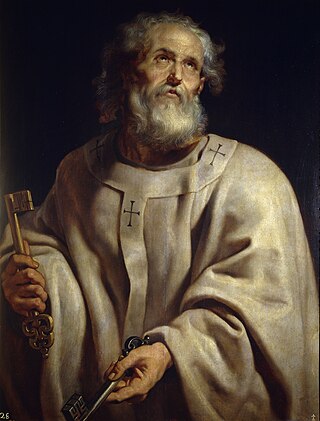 5
Saint Peter, also known as Peter the Apostle, Simon Peter, Simeon, Simon, or Cephas, was one of the Twelve Apostles of Jesus Christ and one of the first leaders of the early Christian Church. He...
5
Saint Peter, also known as Peter the Apostle, Simon Peter, Simeon, Simon, or Cephas, was one of the Twelve Apostles of Jesus Christ and one of the first leaders of the early Christian Church. He...
Otto Arosemena
 5
Otto Arosemena Gómez was President of Ecuador from 16 November 1966 to 1 September 1968.
5
Otto Arosemena Gómez was President of Ecuador from 16 November 1966 to 1 September 1968.
Charles Darwin
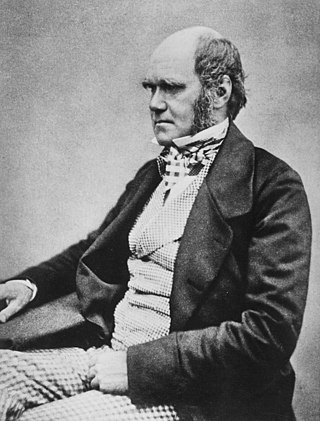 4
Charles Robert Darwin was an English naturalist, geologist and biologist, widely known for his contributions to evolutionary biology. His proposition that all species of life have descended from a...
4
Charles Robert Darwin was an English naturalist, geologist and biologist, widely known for his contributions to evolutionary biology. His proposition that all species of life have descended from a...
Juan José Flores
 4
Juan José Flores y Aramburu was a Venezuelan-born military general who became the first, third and fourth President of the new Republic of Ecuador. He is often referred to as "The Founder of the...
4
Juan José Flores y Aramburu was a Venezuelan-born military general who became the first, third and fourth President of the new Republic of Ecuador. He is often referred to as "The Founder of the...
Jerónimo Carrión
 4
Jerónimo Carrión y Palacio was President of Ecuador between 7 September 1865 and 6 November 1867. He also served as Vice President of Ecuador from 1858 to 1860. He was a member of the Ecuadorian...
4
Jerónimo Carrión y Palacio was President of Ecuador between 7 September 1865 and 6 November 1867. He also served as Vice President of Ecuador from 1858 to 1860. He was a member of the Ecuadorian...
Hugo Ortiz Garcés
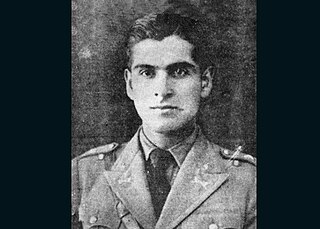 4
Hugo Ortiz Garcés fue un joven militar ecuatoriano caído en combate contra fuerzas militares peruanas y declarado posteriormente Héroe nacional del Ecuador.
4
Hugo Ortiz Garcés fue un joven militar ecuatoriano caído en combate contra fuerzas militares peruanas y declarado posteriormente Héroe nacional del Ecuador.
Saint Joseph
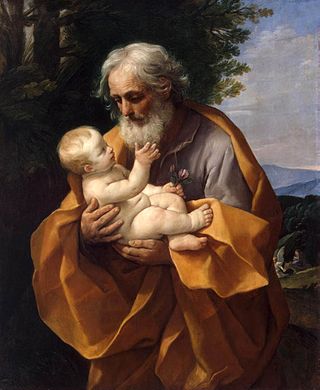 4
Joseph was a 1st-century Jewish man of Nazareth who, according to the canonical Gospels, was married to Mary, the mother of Jesus, and was the legal father of Jesus.
4
Joseph was a 1st-century Jewish man of Nazareth who, according to the canonical Gospels, was married to Mary, the mother of Jesus, and was the legal father of Jesus.
Alonso de Mercadillo
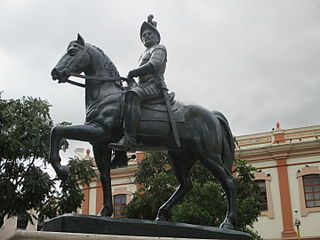 3
Alonso de Mercadillo y Villena fue un capitán español, fundador de las ciudades de Loja y Zaruma, y confundador también, junto con Hernando de Benavente, de la ciudad de Zamora de los Alcaides, todas...
3
Alonso de Mercadillo y Villena fue un capitán español, fundador de las ciudades de Loja y Zaruma, y confundador también, junto con Hernando de Benavente, de la ciudad de Zamora de los Alcaides, todas...
Bernardo Valdivieso
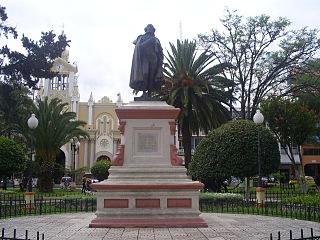 3
Bernardo Valdivieso fue un filántropo impulsor de la educación en la Época Hispánica. Ocupó varios cargos públicos, entre ellos regidor del Cabildo de Loja y Comandante de Milicias. Lleva su nombre...
3
Bernardo Valdivieso fue un filántropo impulsor de la educación en la Época Hispánica. Ocupó varios cargos públicos, entre ellos regidor del Cabildo de Loja y Comandante de Milicias. Lleva su nombre...
Manuel Carrión Pinzano
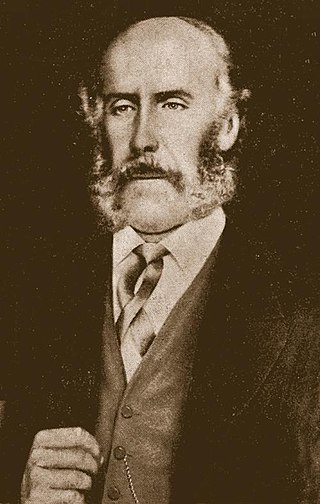 3
Manuel Carrión Pinzano fue un impulsor de la educación, la cultura y la independencia de la ciudad de Loja. Fue Jefe Supremo Civil y Militar del Distrito Federal Lojano. Fundó la Corte Superior de...
3
Manuel Carrión Pinzano fue un impulsor de la educación, la cultura y la independencia de la ciudad de Loja. Fue Jefe Supremo Civil y Militar del Distrito Federal Lojano. Fundó la Corte Superior de...
Gaspar de Villarroel
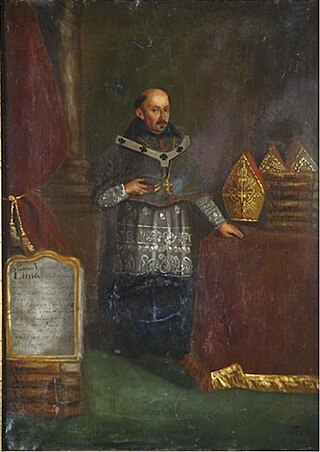 3
Gaspar de Villarroel, O.S.A. was a Roman Catholic prelate who served as Archbishop of La Plata o Charcas (1659–1665), Bishop of Arequipa (1651–1659), and Bishop of Santiago de Chile (1637–1651).
3
Gaspar de Villarroel, O.S.A. was a Roman Catholic prelate who served as Archbishop of La Plata o Charcas (1659–1665), Bishop of Arequipa (1651–1659), and Bishop of Santiago de Chile (1637–1651).
Victor Emilio Estrada
 3
Víctor Emilio Estrada Sciacaluga fue un banquero, economista, estratega militar, autor, articulista, comerciante industrial y político ecuatoriano. Fue el hijo primogénito del expresidente de Ecuador...
3
Víctor Emilio Estrada Sciacaluga fue un banquero, economista, estratega militar, autor, articulista, comerciante industrial y político ecuatoriano. Fue el hijo primogénito del expresidente de Ecuador...
Manuel Vega Dávila
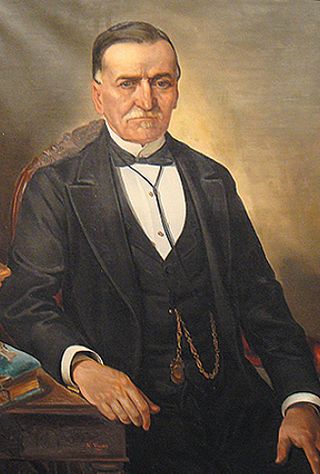 3
Manuel Vega Dávila fue un abogado, comerciante, terrateniente y político ecuatoriano.
3
Manuel Vega Dávila fue un abogado, comerciante, terrateniente y político ecuatoriano.
Lizardo García
 3
Lizardo García Sorroza was President of Ecuador from 1 September 1905 to 15 January 1906.
3
Lizardo García Sorroza was President of Ecuador from 1 September 1905 to 15 January 1906.
Demetrio Aguilera Malta
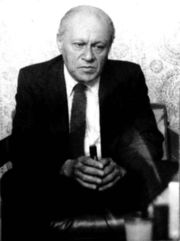 3
Demetrio Aguilera Malta was an Ecuadorian writer, director, painter, and diplomat. He was a member of the Guayaquil Group of the 1930s, who used social realism in their writings. He used magical...
3
Demetrio Aguilera Malta was an Ecuadorian writer, director, painter, and diplomat. He was a member of the Guayaquil Group of the 1930s, who used social realism in their writings. He used magical...
Oswaldo Guayasamín
 3
Oswaldo Guayasamín Calero was an Ecuadorian painter and sculptor of Kichwa and Mestizo heritage.
3
Oswaldo Guayasamín Calero was an Ecuadorian painter and sculptor of Kichwa and Mestizo heritage.
Leónidas Plaza
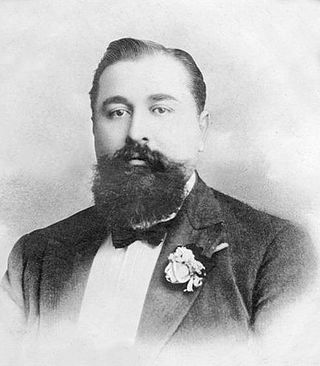 3
Leónidas Plaza y Gutiérrez de Caviedes was an Ecuadorian politician who was the President of Ecuador from 1 September 1901 to 31 August 1905 and again from 1 September 1912 to 31 August 1916.
3
Leónidas Plaza y Gutiérrez de Caviedes was an Ecuadorian politician who was the President of Ecuador from 1 September 1901 to 31 August 1905 and again from 1 September 1912 to 31 August 1916.
Camilo Egas
 3
Camilo Egas was an Ecuadorian master painter and teacher, who was also active in the United States and Europe. Egas was married in Paris 1927 to dancer and artist Margarita Gibbons.
Camilo Egas...
3
Camilo Egas was an Ecuadorian master painter and teacher, who was also active in the United States and Europe. Egas was married in Paris 1927 to dancer and artist Margarita Gibbons.
Camilo Egas...
Pedro Gual Escandón
 3
Pedro José Ramón Gual Escandón, was a Venezuelan lawyer, politician, journalist and diplomat.
3
Pedro José Ramón Gual Escandón, was a Venezuelan lawyer, politician, journalist and diplomat.
Anthony of Padua
 3
Anthony of Padua, OFM or Anthony of Lisbon was a Portuguese Catholic priest and friar of the Franciscan Order.
3
Anthony of Padua, OFM or Anthony of Lisbon was a Portuguese Catholic priest and friar of the Franciscan Order.
Fernando Daquilema
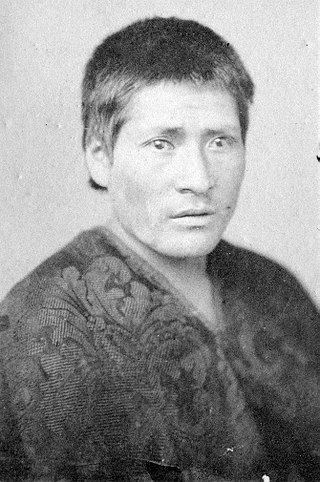 3
Fernando Daquilema Ruiz was an Ecuadorian indigenous leader, considered a hero for the struggle for the rights of his people.
3
Fernando Daquilema Ruiz was an Ecuadorian indigenous leader, considered a hero for the struggle for the rights of his people.
Hyacinth of Caesarea
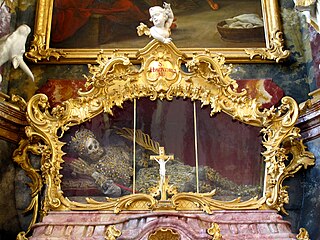 3
Hyacinth was a young Christian living at the start of the second century, who is honored as a martyr and a saint by both the Eastern Orthodox Church and the Roman Catholic Church. Hyacinth is...
3
Hyacinth was a young Christian living at the start of the second century, who is honored as a martyr and a saint by both the Eastern Orthodox Church and the Roman Catholic Church. Hyacinth is...
Manuela Sáenz
 3
Manuela Sáenz de Vergara y Aizpuru was an neogranadine revolutionary heroine of South America who supported the revolutionary cause by gathering information, distributing leaflets and protesting for...
3
Manuela Sáenz de Vergara y Aizpuru was an neogranadine revolutionary heroine of South America who supported the revolutionary cause by gathering information, distributing leaflets and protesting for...
José María Córdova
 3
José María Córdova Muñoz, also known as the "Hero of Ayacucho", was a General of the Colombian army during the Independence War of Colombia, Perú, and Bolivia from Spain.
3
José María Córdova Muñoz, also known as the "Hero of Ayacucho", was a General of the Colombian army during the Independence War of Colombia, Perú, and Bolivia from Spain.
Clemente Yerovi
 3
Clemente Yerovi Indaburu was a politician and the interim president of Ecuador from 30 March 1966, to 16 November 1966.
3
Clemente Yerovi Indaburu was a politician and the interim president of Ecuador from 30 March 1966, to 16 November 1966.
José María Urvina
 3
José María Mariano Segundo de Urvina y Viteri was President of Ecuador from 13 July 1851 to 16 October 1856. He was born in Quillan San Migelito (Pillaro-Tungurahua) on 19 March 1808.
3
José María Mariano Segundo de Urvina y Viteri was President of Ecuador from 13 July 1851 to 16 October 1856. He was born in Quillan San Migelito (Pillaro-Tungurahua) on 19 March 1808.
Juan Larrea (politician)
 2
Juan Larrea was a Spanish businessman and politician in Buenos Aires during the early nineteenth century. He headed a military unit during the second British invasion of the Río de la Plata, and...
2
Juan Larrea was a Spanish businessman and politician in Buenos Aires during the early nineteenth century. He headed a military unit during the second British invasion of the Río de la Plata, and...
Manuel Agustín Aguirre
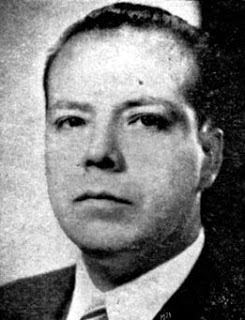 2
Manuel Agustín Aguirre Ríos fue un político y catedrático ecuatoriano que llegó a ser en varias ocasiones secretario general del Partido Socialista (PSE), fundador del Partido Socialista...
2
Manuel Agustín Aguirre Ríos fue un político y catedrático ecuatoriano que llegó a ser en varias ocasiones secretario general del Partido Socialista (PSE), fundador del Partido Socialista...
Medardo Ángel Silva
 2
Medardo Ángel Silva Rodas was an Ecuadorian poet and a member of the Generación decapitada. The "Decapitated Generation" was a group of four young Ecuadorian poets in the first decades of the 20th...
2
Medardo Ángel Silva Rodas was an Ecuadorian poet and a member of the Generación decapitada. The "Decapitated Generation" was a group of four young Ecuadorian poets in the first decades of the 20th...
Benjamín Carrión
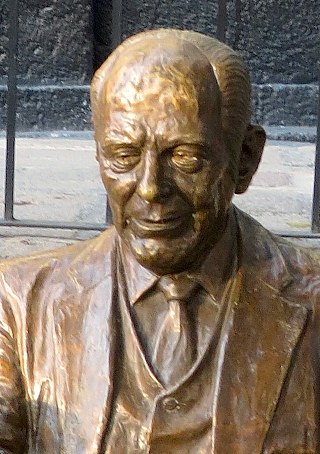 2
Manuel Benjamín Carrión Mora was an Ecuadorian writer, diplomat and cultural promoter.
2
Manuel Benjamín Carrión Mora was an Ecuadorian writer, diplomat and cultural promoter.
Lauro Guerrero Becerra
 2
Lauro Guerrero Becerra fue un militar y héroe nacional ecuatoriano, sus padres fueron Anselmo Guerrero Córdova y Tomasa Becerra Calderón.
2
Lauro Guerrero Becerra fue un militar y héroe nacional ecuatoriano, sus padres fueron Anselmo Guerrero Córdova y Tomasa Becerra Calderón.
Juan de Salinas
 2
Juan de Salinas was the governor of Spanish Florida from August 2, 1618 - October 28, 1624.
2
Juan de Salinas was the governor of Spanish Florida from August 2, 1618 - October 28, 1624.
José Miguel Oviedo
 2
José Miguel Oviedo was a Peruvian writer and literary critic, born in Lima. He received his doctorate from the Pontificia Universidad Católica in 1961, afterwards teaching at the same institution....
2
José Miguel Oviedo was a Peruvian writer and literary critic, born in Lima. He received his doctorate from the Pontificia Universidad Católica in 1961, afterwards teaching at the same institution....
Vicente Ramón Roca
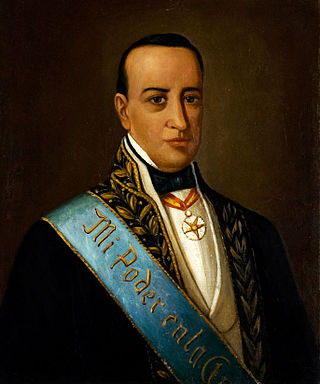 2
Vicente Ramón Roca Rodríguez was President of Ecuador from 8 December 1845 to 15 October 1849. He was a member of the Liberal Party. He led the revolution that overthrew Juan José Flores, along with...
2
Vicente Ramón Roca Rodríguez was President of Ecuador from 8 December 1845 to 15 October 1849. He was a member of the Liberal Party. He led the revolution that overthrew Juan José Flores, along with...
Mariano Acosta (politician)
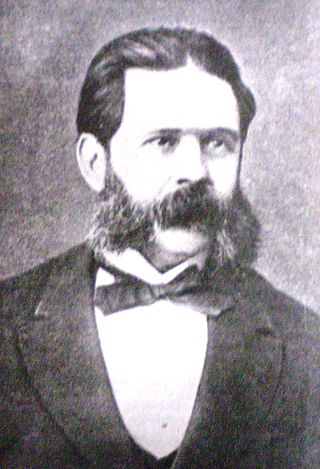 2
Mariano Acosta was an Argentine lawyer and politician.
2
Mariano Acosta was an Argentine lawyer and politician.
Pablo Palacio
 2
Pablo Arturo Palacio Suárez fue escritor y abogado ecuatoriano. Fue uno de los fundadores de la vanguardia en el Ecuador e Hispanoamérica, un adelantado en lo que respecta a estructuras y contenidos...
2
Pablo Arturo Palacio Suárez fue escritor y abogado ecuatoriano. Fue uno de los fundadores de la vanguardia en el Ecuador e Hispanoamérica, un adelantado en lo que respecta a estructuras y contenidos...
George Washington
 2
George Washington was an American Founding Father, military officer, and politician who served as the first president of the United States from 1789 to 1797. Appointed by the Second Continental...
2
George Washington was an American Founding Father, military officer, and politician who served as the first president of the United States from 1789 to 1797. Appointed by the Second Continental...
Tsáchila
 2
The Tsachila, also called the Colorados, are an indigenous people of the Ecuadorian province of Santo Domingo de los Tsáchilas, partly named after them. Their native language is Tsafiki, a member of...
2
The Tsachila, also called the Colorados, are an indigenous people of the Ecuadorian province of Santo Domingo de los Tsáchilas, partly named after them. Their native language is Tsafiki, a member of...
José Antonio Eguiguren
 2
José Antonio Eguiguren nació en Loja en 1867. sus padres fueron: José Eguiguren y Valvina Eguiguren. Sus estudios primarios los realizó en la ciudad de Loja, los secundarios en el Colegio de los...
2
José Antonio Eguiguren nació en Loja en 1867. sus padres fueron: José Eguiguren y Valvina Eguiguren. Sus estudios primarios los realizó en la ciudad de Loja, los secundarios en el Colegio de los...
Leopoldo Benites
 2
Leopoldo Benites was an Ecuadorian diplomat who served as the 28th President of the United Nations General Assembly in 1973. He had been the permanent representative of Ecuador since October 1960.
2
Leopoldo Benites was an Ecuadorian diplomat who served as the 28th President of the United Nations General Assembly in 1973. He had been the permanent representative of Ecuador since October 1960.
Luis A. Martínez
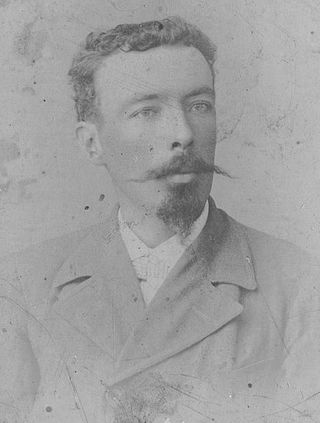 2
Luis Alfredo Martínez Holguín was an Ecuadorian writer, painter, politician, and agriculturist. He introduced Realism into Ecuadorian literature. He was an opponent of the government of Eloy Alfaro....
2
Luis Alfredo Martínez Holguín was an Ecuadorian writer, painter, politician, and agriculturist. He introduced Realism into Ecuadorian literature. He was an opponent of the government of Eloy Alfaro....
Jesus
 2
Jesus, also referred to as Jesus Christ, Jesus of Nazareth, and many other names and titles, was a first-century Jewish preacher and religious leader. He is the central figure of Christianity, the...
2
Jesus, also referred to as Jesus Christ, Jesus of Nazareth, and many other names and titles, was a first-century Jewish preacher and religious leader. He is the central figure of Christianity, the...
Gil Ramírez Dávalos
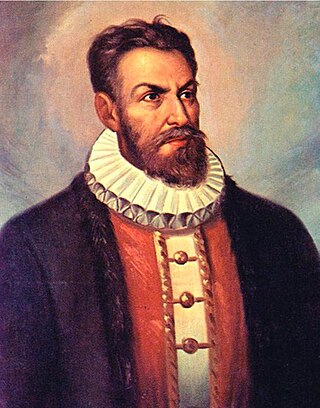 2
Gil Ramírez Dávalos era un explorador y conquistador español que fuera asignado como corregidor del Cusco en el año 1553 y posteriormente como gobernador de Quito, desde 1556 hasta 1559. Fundó las...
2
Gil Ramírez Dávalos era un explorador y conquistador español que fuera asignado como corregidor del Cusco en el año 1553 y posteriormente como gobernador de Quito, desde 1556 hasta 1559. Fundó las...
Alejo Lascano Bahamonde
 2
Alejo Lascano Bahamonde was an Ecuadorian doctor-surgeon. He graduated on July 17, 1864, at the Sorbonne Medical School under professor Noël Guéneau de Mussy. Alejo Lascano brought the first forceps...
2
Alejo Lascano Bahamonde was an Ecuadorian doctor-surgeon. He graduated on July 17, 1864, at the Sorbonne Medical School under professor Noël Guéneau de Mussy. Alejo Lascano brought the first forceps...
Isabella I of Castile
 2
Isabella I, also called Isabella the Catholic, was Queen of Castile and León from 1474 until her death in 1504. She was also Queen of Aragon from 1479 until her death as the wife of King Ferdinand...
2
Isabella I, also called Isabella the Catholic, was Queen of Castile and León from 1474 until her death in 1504. She was also Queen of Aragon from 1479 until her death as the wife of King Ferdinand...
José María Peña
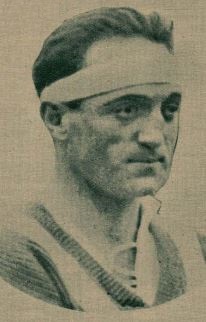 2
Anacleto José María Peña Salegui was a Spanish professional football player and manager.
2
Anacleto José María Peña Salegui was a Spanish professional football player and manager.
John Bosco
 2
John Melchior Bosco, SDB, popularly known as Don Bosco, was an Italian Catholic priest, educator and writer of the 19th century. While working in Turin, where the population suffered many of the ill...
2
John Melchior Bosco, SDB, popularly known as Don Bosco, was an Italian Catholic priest, educator and writer of the 19th century. While working in Turin, where the population suffered many of the ill...
José de Antepara
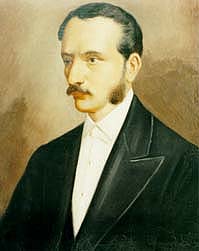 2
José María de la Concepción de Antepara y Arenaza, fue un comerciante, periodista, militar y político guayaquileño. Participó como uno de los próceres de la independencia de Guayaquil en 1820, siendo...
2
José María de la Concepción de Antepara y Arenaza, fue un comerciante, periodista, militar y político guayaquileño. Participó como uno de los próceres de la independencia de Guayaquil en 1820, siendo...
Diego de Almagro
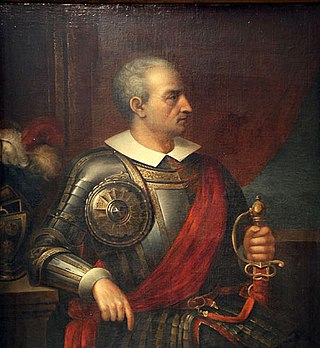 2
Diego de Almagro, also known as El Adelantado and El Viejo, was a Spanish conquistador known for his exploits in western South America. He participated with Francisco Pizarro in the Spanish conquest...
2
Diego de Almagro, also known as El Adelantado and El Viejo, was a Spanish conquistador known for his exploits in western South America. He participated with Francisco Pizarro in the Spanish conquest...
Francisco Robles
 2
Francisco Robles García was President of Ecuador from 16 October 1856 to 31 August 1859. During his term, war broke out with Peru and Ecuador was defeated.
2
Francisco Robles García was President of Ecuador from 16 October 1856 to 31 August 1859. During his term, war broke out with Peru and Ecuador was defeated.
Humberto Albornoz
 2
Humberto Albornoz Sánchez (1894–1959) was rotating chairman of the Provisional Government Junta of Ecuador from January 10 to March 10, 1926. He was Minister of Finance in the junta.
2
Humberto Albornoz Sánchez (1894–1959) was rotating chairman of the Provisional Government Junta of Ecuador from January 10 to March 10, 1926. He was Minister of Finance in the junta.
Antonio de Ulloa
 2
Antonio de Ulloa was a Spanish naval officer, scientist, and administrator. At the age of nineteen, he joined the French Geodesic Mission to what is now the country of Ecuador. That mission took more...
2
Antonio de Ulloa was a Spanish naval officer, scientist, and administrator. At the age of nineteen, he joined the French Geodesic Mission to what is now the country of Ecuador. That mission took more...
Ulpiano Páez
 2
Ulpiano Páez fue un militar ecuatoriano que formó parte de la Revolución Liberal.
2
Ulpiano Páez fue un militar ecuatoriano que formó parte de la Revolución Liberal.
José María Egas
 2
José María Egas was an Ecuadorian poet. Many of his poems were turned into the lyrics of "pasillos". Egas studied law at the University of Guayaquil graduated in 1927. He was then active as a lawyer...
2
José María Egas was an Ecuadorian poet. Many of his poems were turned into the lyrics of "pasillos". Egas studied law at the University of Guayaquil graduated in 1927. He was then active as a lawyer...
Fray Vicente Solano
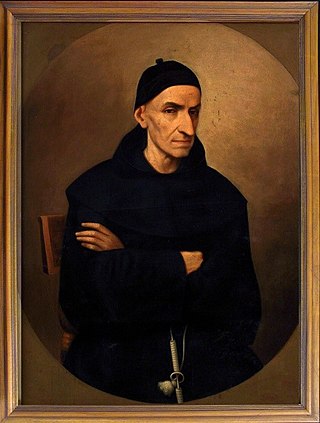 2
Fray Vicente Solano fue un importante sacerdote, teólogo, filósofo, naturalista, y periodista que vivió los acontecimientos históricos de la independencia de Ecuador.
2
Fray Vicente Solano fue un importante sacerdote, teólogo, filósofo, naturalista, y periodista que vivió los acontecimientos históricos de la independencia de Ecuador.
Julio Zaldumbide
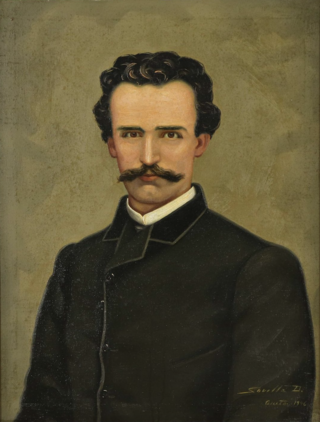 2
Julio Zaldumbide Gangotena fue un poeta y político de Ecuador. Es considerado como uno de los más importantes poetas del periodo romántico que se desarrolló en el siglo XIX.
2
Julio Zaldumbide Gangotena fue un poeta y político de Ecuador. Es considerado como uno de los más importantes poetas del periodo romántico que se desarrolló en el siglo XIX.
Abdón Calderón Muñoz
 2
Abdón Calderón Muñoz was an Ecuadorian politician and economist. He was the founder of the Alfarista Radical Front. He was a candidate for president of Ecuador in the 1978 general election shortly...
2
Abdón Calderón Muñoz was an Ecuadorian politician and economist. He was the founder of the Alfarista Radical Front. He was a candidate for president of Ecuador in the 1978 general election shortly...
Remigio Crespo Toral
 2
Remigio Crespo Toral was an Ecuadorian writer from Cuenca.
2
Remigio Crespo Toral was an Ecuadorian writer from Cuenca.
Gonzalo Suárez Rendón
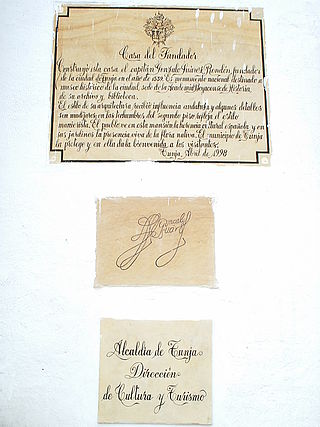 2
Gonzalo Suárez Rendón was a Spanish crusader and conquistador, known as the founder of the capital of Boyacá; Tunja, second city of the New Kingdom of Granada. A veteran of the Italian Wars, he also...
2
Gonzalo Suárez Rendón was a Spanish crusader and conquistador, known as the founder of the capital of Boyacá; Tunja, second city of the New Kingdom of Granada. A veteran of the Italian Wars, he also...
Paulo Freire
 2
Paulo Reglus Neves Freire was a Brazilian educator and philosopher who was a leading advocate of critical pedagogy. His influential work Pedagogy of the Oppressed is generally considered one of the...
2
Paulo Reglus Neves Freire was a Brazilian educator and philosopher who was a leading advocate of critical pedagogy. His influential work Pedagogy of the Oppressed is generally considered one of the...
Oscar Efren Reyes
 2
Oscar Efrén Reyes, was a historian, journalist, politician, researcher and an Ecuadorian teacher. He is remembered for his teachings as well as his historic research of Ecuador and America.
2
Oscar Efrén Reyes, was a historian, journalist, politician, researcher and an Ecuadorian teacher. He is remembered for his teachings as well as his historic research of Ecuador and America.
Rafael María Arízaga
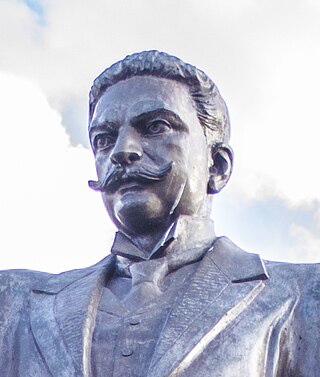 2
Rafael María Arízaga fue un notable abogado, diplomático, literato y político ecuatoriano nacido en la ciudad de Cuenca el 24 de junio de 1858 y muerto en esa misma ciudad el 8 de agosto de 1933.
2
Rafael María Arízaga fue un notable abogado, diplomático, literato y político ecuatoriano nacido en la ciudad de Cuenca el 24 de junio de 1858 y muerto en esa misma ciudad el 8 de agosto de 1933.
Manuela Cañizares
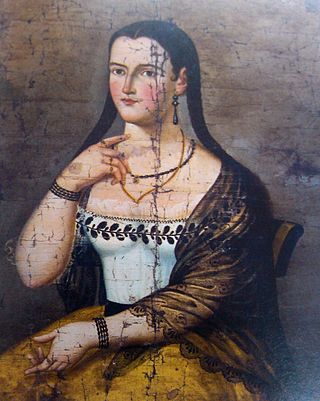 2
Manuela Cañizares (1769-1814) was an Ecuadorian salonist and heroine of independence.
2
Manuela Cañizares (1769-1814) was an Ecuadorian salonist and heroine of independence.
Segundo Luis Moreno
 2
Segundo Luis Moreno Andrade was an Ecuadorian composer and musicologist.
2
Segundo Luis Moreno Andrade was an Ecuadorian composer and musicologist.
Miguel Riofrío
 2
Miguel Riofrio Sánchez was an Ecuadoran poet, novelist, journalist, orator, and educator. He was born in the city of Loja.
2
Miguel Riofrio Sánchez was an Ecuadoran poet, novelist, journalist, orator, and educator. He was born in the city of Loja.
José Félix Valdivieso
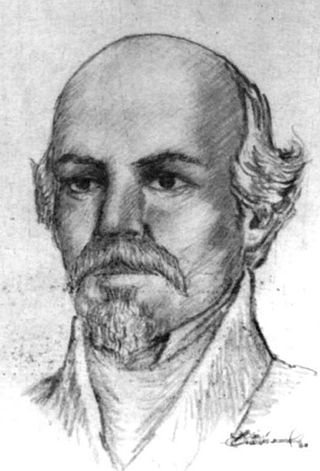 2
José Félix Valdivieso y Valdivieso, fue un político, jurista, catedrático, y diplomático ecuatoriano. Ejerció, entre otros cargos, como Alcalde de Quito entre 1822 y 1823, y Jefe Supremo en la Región...
2
José Félix Valdivieso y Valdivieso, fue un político, jurista, catedrático, y diplomático ecuatoriano. Ejerció, entre otros cargos, como Alcalde de Quito entre 1822 y 1823, y Jefe Supremo en la Región...
José de la Mar
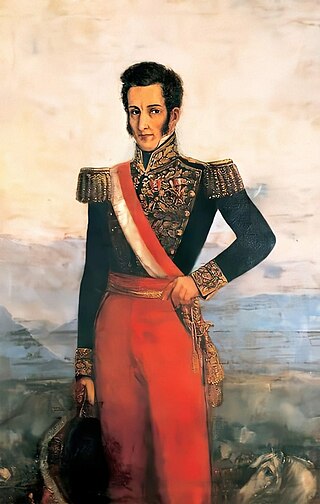 2
José Domingo de la Merced de La Mar y Cortázar was a Peruvian military leader and politician who served as the third President of Peru.
2
José Domingo de la Merced de La Mar y Cortázar was a Peruvian military leader and politician who served as the third President of Peru.
Hilario Álvarez
 2
Hilario Álvarez, fue un curaca cuzqueño, y militar peruano que protagonizó la toma de los cuarteles españoles la noche del 8 de octubre de 1820, durante las revueltas libertarias de la Independencia...
2
Hilario Álvarez, fue un curaca cuzqueño, y militar peruano que protagonizó la toma de los cuarteles españoles la noche del 8 de octubre de 1820, durante las revueltas libertarias de la Independencia...
Numa Pompilio Llona
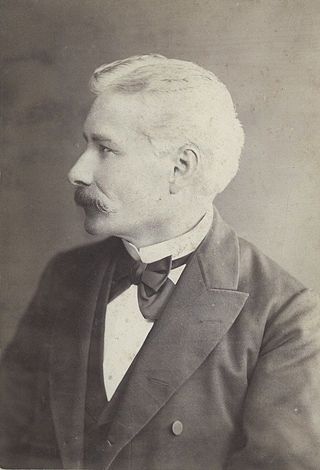 2
Numa Pompilio Llona Echeverri was an Ecuadorian poet, journalist, educator, diplomat, and philosopher.
2
Numa Pompilio Llona Echeverri was an Ecuadorian poet, journalist, educator, diplomat, and philosopher.
Clodoveo Carrión Mora
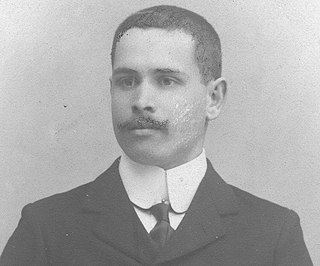 2
Clodoveo Carrión Mora (1883–1957) was a palaeontologist and naturalist who is regarded as the most prolific and erudite natural scientist of Ecuador of the 20th century.
2
Clodoveo Carrión Mora (1883–1957) was a palaeontologist and naturalist who is regarded as the most prolific and erudite natural scientist of Ecuador of the 20th century.
Joaquín Gallegos Lara
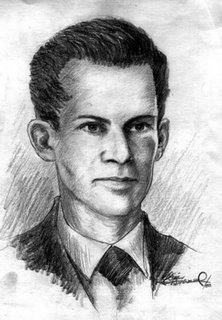 2
Joaquín Gallegos Lara was an Ecuadorian social realist novelist, short story writer, poet, and essayist.
2
Joaquín Gallegos Lara was an Ecuadorian social realist novelist, short story writer, poet, and essayist.
Huayna Capac
 2
Huayna Capac was the third Sapa Inca of Tawantinsuyu, the Inca Empire. He was the son of and successor to Túpac Inca Yupanqui., the sixth Sapa Inca of the Hanan dynasty, and eleventh of the Inca...
2
Huayna Capac was the third Sapa Inca of Tawantinsuyu, the Inca Empire. He was the son of and successor to Túpac Inca Yupanqui., the sixth Sapa Inca of the Hanan dynasty, and eleventh of the Inca...
Manuela Garaycoa
 2
Manuela Garaicoa de Calderón fue una independentista ecuatoriana.
2
Manuela Garaicoa de Calderón fue una independentista ecuatoriana.
Saint Vincent
 2
Saint Vincent may refer to:
2
Saint Vincent may refer to:
Juan M. Arellano
 2
Juan Marcos Arellano y de Guzmán, or Juan M. Arellano, was a Filipino architect, best known for Manila's Metropolitan Theater (1935), Legislative Building, the Manila Central Post Office Building...
2
Juan Marcos Arellano y de Guzmán, or Juan M. Arellano, was a Filipino architect, best known for Manila's Metropolitan Theater (1935), Legislative Building, the Manila Central Post Office Building...
Leonidas Proaño
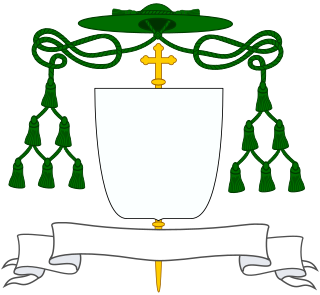 2
Leonidas Eduardo Proaño Villalba was an Ecuadorian prelate and theologian. He served as the bishop of Riobamba from 1954 to 1985. He was a candidate for the Nobel Peace Prize and is considered one of...
2
Leonidas Eduardo Proaño Villalba was an Ecuadorian prelate and theologian. He served as the bishop of Riobamba from 1954 to 1985. He was a candidate for the Nobel Peace Prize and is considered one of...
Carlos Andrade Marín
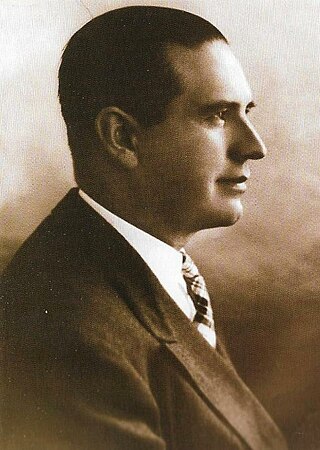 2
Carlos Andrade Marín fue un médico y político ecuatoriano, concejal de Quito desde 1935 hasta 1938, alcalde y ministro de trabajo. Promovió la construcción del Estadio Nacional del Ecuador y también...
2
Carlos Andrade Marín fue un médico y político ecuatoriano, concejal de Quito desde 1935 hasta 1938, alcalde y ministro de trabajo. Promovió la construcción del Estadio Nacional del Ecuador y también...
Manuel José Mosquera
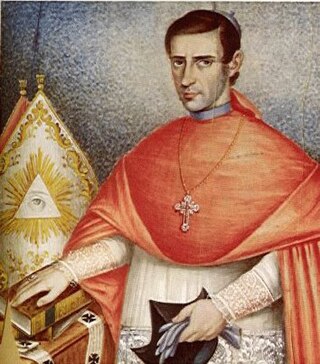 2
Manuel José Mosquera-Figueroa y Arboleda-Salazar, fue un religioso, humanista y filósofo colombiano.
2
Manuel José Mosquera-Figueroa y Arboleda-Salazar, fue un religioso, humanista y filósofo colombiano.
Saint Anne
 2
According to apocrypha, as well as Christian and Islamic tradition, Saint Anne was the mother of Mary, the wife of Joachim and the maternal grandmother of Jesus. Mary's mother is not named in the...
2
According to apocrypha, as well as Christian and Islamic tradition, Saint Anne was the mother of Mary, the wife of Joachim and the maternal grandmother of Jesus. Mary's mother is not named in the...
Tomás Martínez
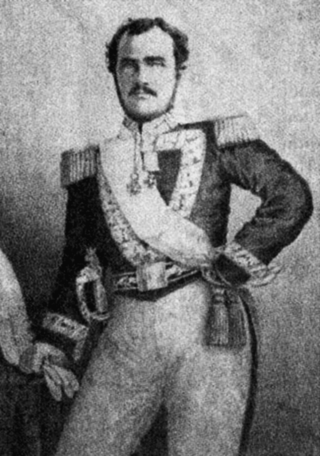 2
Tomás Martínez Guerrero was the President of Nicaragua between 15 November 1857 and 1 March 1867. From 24 June 1857 to 19 October or 15 November 1857, he acted jointly as the 2nd President in a dual...
2
Tomás Martínez Guerrero was the President of Nicaragua between 15 November 1857 and 1 March 1867. From 24 June 1857 to 19 October or 15 November 1857, he acted jointly as the 2nd President in a dual...
Luis Felipe Borja Pérez
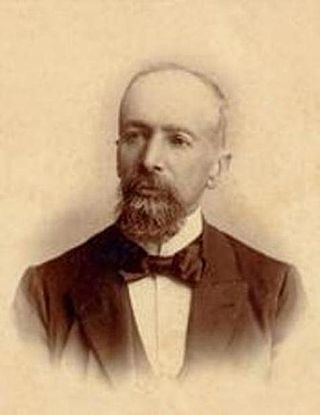 2
Luis Felipe Borja Pérez fue un jurisconsulto, político, literato y maestro ecuatoriano.
2
Luis Felipe Borja Pérez fue un jurisconsulto, político, literato y maestro ecuatoriano.
Julio Jaramillo
 2
Julio Alfredo Jaramillo Laurido was a notable Ecuadorian singer and recording artist who performed throughout Latin America, achieving great fame for his renditions of boleros, valses, pasillos,...
2
Julio Alfredo Jaramillo Laurido was a notable Ecuadorian singer and recording artist who performed throughout Latin America, achieving great fame for his renditions of boleros, valses, pasillos,...
Eduardo Kingman
 2
Eduardo Kingman Riofrío was an Ecuadorian artist. He is considered one of Ecuador's greatest artists of the 20th century, among the art circles of other master artists such as Oswaldo Guayasamín and...
2
Eduardo Kingman Riofrío was an Ecuadorian artist. He is considered one of Ecuador's greatest artists of the 20th century, among the art circles of other master artists such as Oswaldo Guayasamín and...
Reinaldo Espinosa Aguilar
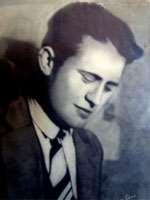 2
Reinaldo Espinosa Aguilar, botánico, biólogo ecuatoriano. Probablemente el máximo representante de la botánica en el Ecuador durante el siglo XX; investigó y catalogó la flora andina en todo el...
2
Reinaldo Espinosa Aguilar, botánico, biólogo ecuatoriano. Probablemente el máximo representante de la botánica en el Ecuador durante el siglo XX; investigó y catalogó la flora andina en todo el...
Juan Pío Montúfar
 2
Juan Pío de Montúfar y Larrea-Zurbano, II marqués de Selva Alegre y caballero de la Orden de Carlos III,, fue un noble español nacido en Quito. En el año 1809 fue elegido cabeza de la Primera Junta...
2
Juan Pío de Montúfar y Larrea-Zurbano, II marqués de Selva Alegre y caballero de la Orden de Carlos III,, fue un noble español nacido en Quito. En el año 1809 fue elegido cabeza de la Primera Junta...
Pablo Neruda
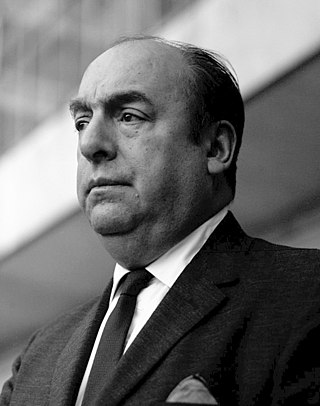 2
Pablo Neruda was a Chilean poet-diplomat and politician who won the 1971 Nobel Prize in Literature. Neruda became known as a poet when he was 13 years old and wrote in a variety of styles, including...
2
Pablo Neruda was a Chilean poet-diplomat and politician who won the 1971 Nobel Prize in Literature. Neruda became known as a poet when he was 13 years old and wrote in a variety of styles, including...
Ludwig van Beethoven
 2
Ludwig van Beethoven was a German composer and pianist. He is one of the most revered figures in the history of Western music; his works rank among the most performed of the classical music...
2
Ludwig van Beethoven was a German composer and pianist. He is one of the most revered figures in the history of Western music; his works rank among the most performed of the classical music...
Salvador Allende
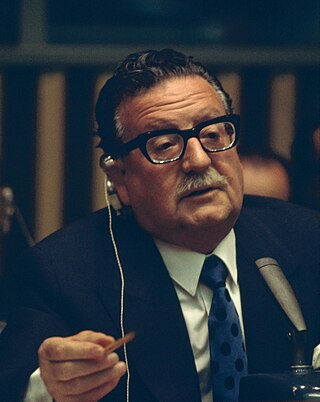 2
Salvador Guillermo Allende Gossens was a Chilean socialist politician who served as the 28th president of Chile from 1970 until his death in 1973. As a democratic socialist committed to democracy, he...
2
Salvador Guillermo Allende Gossens was a Chilean socialist politician who served as the 28th president of Chile from 1970 until his death in 1973. As a democratic socialist committed to democracy, he...
Francisco Pizarro
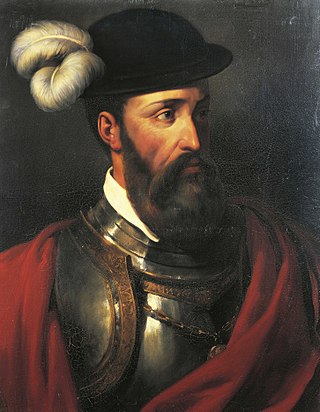 2
Francisco Pizarro, Marquess of the Atabillos was a Spanish conquistador, best known for his expeditions that led to the Spanish conquest of the Inca Empire.
2
Francisco Pizarro, Marquess of the Atabillos was a Spanish conquistador, best known for his expeditions that led to the Spanish conquest of the Inca Empire.
Diego Vaca de Vega
 2
General Diego Vaca de Vega, fue un conquistador, explorador, y militar español en América. Nació en España, en la villa de Siete Iglesias, Valladolid, cerca de la ciudad de Medina del Campo. Sus...
2
General Diego Vaca de Vega, fue un conquistador, explorador, y militar español en América. Nació en España, en la villa de Siete Iglesias, Valladolid, cerca de la ciudad de Medina del Campo. Sus...
Horacio Hidrovo Peñaherrera
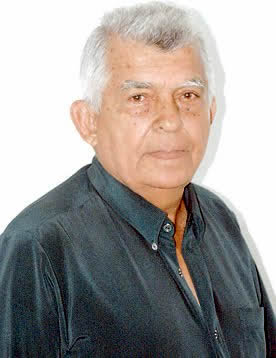 2
Horacio Hidrovo Peñaherrera was an Ecuadorian poet, writer, professor, and cultural promoter.
2
Horacio Hidrovo Peñaherrera was an Ecuadorian poet, writer, professor, and cultural promoter.
Antonio Borrero
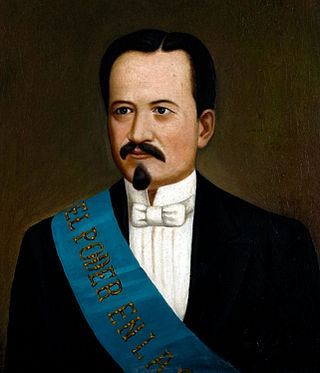 2
Antonio María Vicente Narciso Borrero y Cortázar was Vice President of Ecuador from 1863 to 1864, and President from 9 December 1875 to 18 December 1876.
2
Antonio María Vicente Narciso Borrero y Cortázar was Vice President of Ecuador from 1863 to 1864, and President from 9 December 1875 to 18 December 1876.